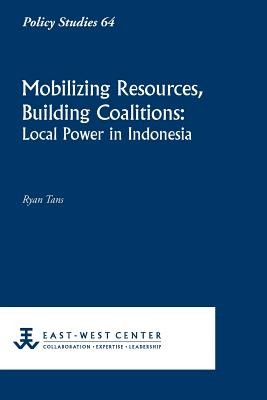
- We will send in 10–14 business days.
- Author: Ryan Tans
- Publisher: East-West Center
- ISBN-10: 0866382356
- ISBN-13: 9780866382359
- Format: 15.6 x 23.4 x 0.5 cm, minkšti viršeliai
- Language: English
- SAVE -10% with code: EXTRA
Reviews
Description
What have been the local political consequences of Indonesia's decentralization and electoral reforms? Some recent scholarship has emphasized continuity with Suharto's New Order, arguing that under the new rules, old elites have used money and intimidation to capture elected office. Studies detail the widespread practice of "money politics," in which candidates exchange patronage for support from voters and parties. Yet significant variation characterizes Indonesia's local politics, which suggests the need for an approach that differentiates contrasting power arrangements.
This study of three districts in North Sumatra province compares local politicians according to their institutional resource bases and coalitional strategies. Even if all practice money politics, they form different coalition types that depend on diverse institutions for political resources. The three ideal types of coalitions are political mafias, party machines, and mobilizing coalitions. Political mafias have a resource base limited to local state institutions and businesses; party machines bridge local and supra-local institutions; and mobilizing coalitions incorporate social organizations and groups of voters. Due to contrasting resource bases, the coalitions have different strategic option "menus," and they may experiment with various political tactics.
The framework developed here plausibly applies in other Indonesian districts to the extent that similar resource bases--namely local state institutions, party networks, and strong social and business organizations--are available to elites in other places.
- Author: Ryan Tans
- Publisher: East-West Center
- ISBN-10: 0866382356
- ISBN-13: 9780866382359
- Format: 15.6 x 23.4 x 0.5 cm, minkšti viršeliai
- Language: English English
What have been the local political consequences of Indonesia's decentralization and electoral reforms? Some recent scholarship has emphasized continuity with Suharto's New Order, arguing that under the new rules, old elites have used money and intimidation to capture elected office. Studies detail the widespread practice of "money politics," in which candidates exchange patronage for support from voters and parties. Yet significant variation characterizes Indonesia's local politics, which suggests the need for an approach that differentiates contrasting power arrangements.
This study of three districts in North Sumatra province compares local politicians according to their institutional resource bases and coalitional strategies. Even if all practice money politics, they form different coalition types that depend on diverse institutions for political resources. The three ideal types of coalitions are political mafias, party machines, and mobilizing coalitions. Political mafias have a resource base limited to local state institutions and businesses; party machines bridge local and supra-local institutions; and mobilizing coalitions incorporate social organizations and groups of voters. Due to contrasting resource bases, the coalitions have different strategic option "menus," and they may experiment with various political tactics.
The framework developed here plausibly applies in other Indonesian districts to the extent that similar resource bases--namely local state institutions, party networks, and strong social and business organizations--are available to elites in other places.


Reviews